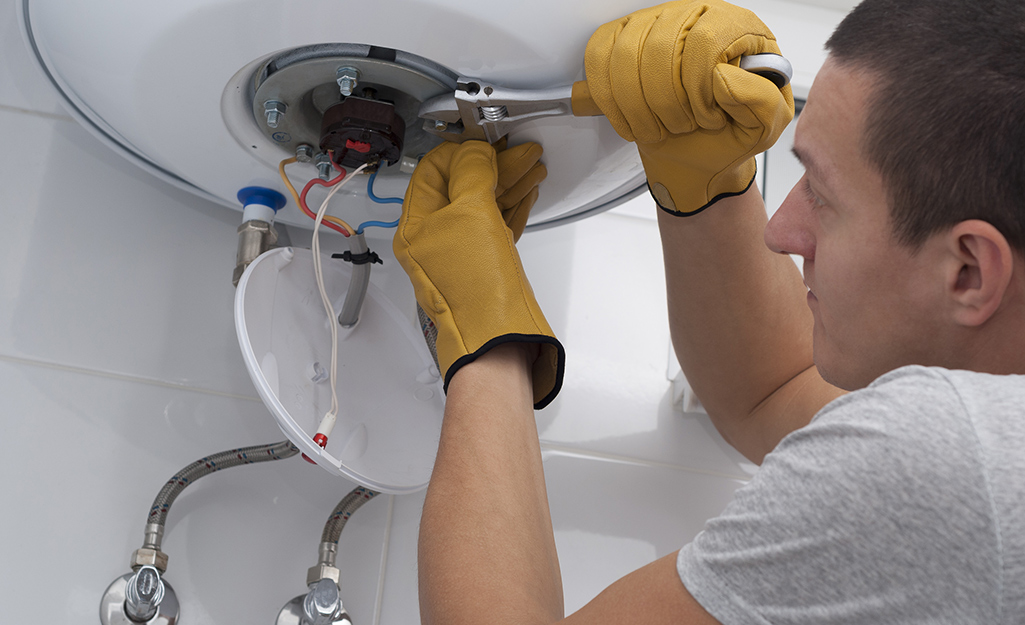Managing the Routine Hot Water Heater Crisis Events
Managing the Routine Hot Water Heater Crisis Events
Blog Article
Here below you will find lots of good help and advice relating to Is Your Water Heater Leaking?.

A hot water heater is one of one of the most crucial standard appliances that can be located in a residence. With water heaters, you don't require to undergo the stress of heating water manually each time there is a demand to wash, wash, or the dishes. There is constantly an opportunity that your water heating system would certainly act up as with a lot of mechanical devices.
It is very important to note any little malfunction and tackle it promptly prior to things leave hand. Many times, your water heater starts to malfunction when there is a build-up of debris as a result of continuous usage. As a safety measure, routine flushing of your water heater is advised to stop sediment accumulation and also avoid useful failure.
Typical hot water heater emergencies and also just how to take care of them
Inadequate hot water
It may be that the water heating system can not support the warm water demand for your apartment. You might update your water heating unit to one with a bigger capacity.
Rising and fall water temperature.
Your water heater can begin producing water of different temperatures usually ice cold or scalding warm. There may be a need to replace either the heating or the thermostat unit of your water heating unit.
Dripping water heater storage tank.
In this situation, you ought to turn off your water heating system, enable it to cool down, as well as thoroughly look for the source of the problem. At times, all you require to do is to tighten a few screws or pipeline links in situations of small leaks. If this doesn't function and the leakage lingers, you may require to employ the solutions of a service technician for a suitable substitute.
Stained or odiferous water
When this happens, you need to recognize if the issue is from the tank or the water source. If there is no amusing odor when you run cold water, after that you are specific that it is your water heater that is defective. The stinky water can be caused by rust or the accumulation of microorganisms or sediments in the hot water heater container. You can attempt flushing out your container or changing the anode if the problem continues once you observe this. The function of the anode is to clean bacteria from your storage tank. Because the anode pole substitute calls for an extensive knowledge of your water heater, you will need the help of an expert.
Conclusion
Some homeowners disregard little caution and minor faults in their hot water heater device. This only brings about additional damages and a possible total failure of your appliance. You ought to take care of your hot water heater mistakes as quickly as they come up to avoid more expenses and unnecessary emergency problems.
With water heating systems, you do not require to go via the stress of heating water by hand every time there is a need to take a bathroom, do the laundry, or the recipes. It may be that the water heating unit can't sustain the hot water demand for your house. Your water heater might begin producing water of various temperature levels normally ice scalding or chilly warm. If there is no amusing scent when you run cold water, then you are specific that it is your water heating unit that is malfunctioning. The odiferous water can be created by corrosion or the accumulation of microorganisms or sediments in the water heater storage tank.
Common Water Heater Issues and What You Should Do
What Type of Water Heater Do You Have?
Before we begin it’s first important that you identify the type of water heater you have on your property. There are two main types of water heaters out there: conventional and high efficiency.
Both of these types of products typically use either gas or electricity to heat power. There are also solar water heaters that use a thermal collector on the roof or yard to heat the water.
While these models are not as common, they can cut heating costs in half. In this article, we will focus on conventional and high efficiency.
How Do My Electric and Gas Water Heater Work?
Though they look similar, electric and gas water heaters work very differently. It’s important to know their basic function because often problems can be specific to the heating source.
In the electric model, a thermostat on the side of the machine detects the temperature of the water in the tank. When the temperature needs to rise electricity flows to a heating element suspended in the water.
Gas models also use a thermostat device — typically with a mercury sensor at the tip and an additional sensor called a thermocouple. The thermocouple detects whether the pilot light is on and controls the flow of gas.
When the thermostat drops below the appropriate level gas is released which becomes ignited by the pilot light. The flame heats the bottom of the water tank which causes hot water to rise and cold water to drop.
This natural circulation continues until the water reaches the desired temperature. Then, the thermostat triggers the gas control valve to shut off the flow of gas.
What Are the Most Common Issues and How Do You Fix Them?
https://happyhiller.com/blog/common-water-heater-issues-and-what-you-should-do/

As an enthusiastic reader about Common Hot Water Heater Problems, I thought sharing that excerpt was a good thing. Do you know another person who is interested in the subject? Feel free to promote it. Thanks a lot for your time. Please come by our website back soon.
For quick fixes, call! Report this page